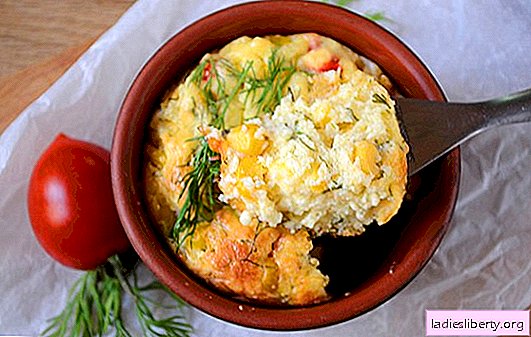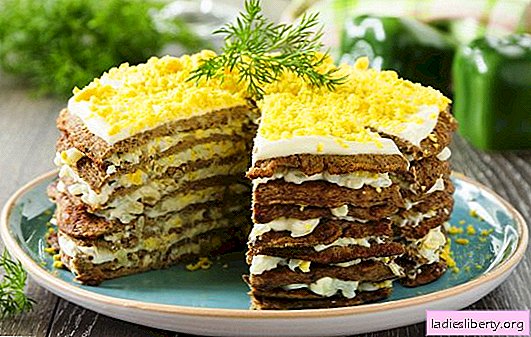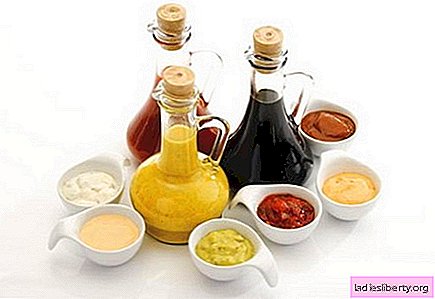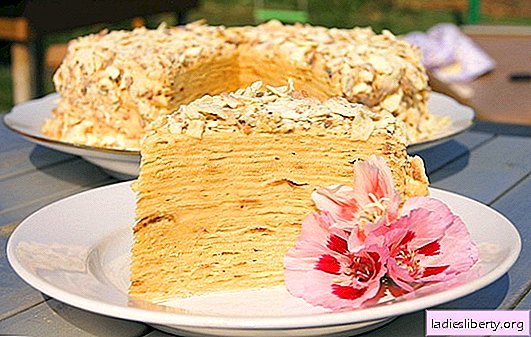
A meat-free diet is the most optimal solution for adults who not only want to lose weight, maintain a figure in perfect condition, but also take care of their health.
Since the temporary cessation of consumption of animal fats leads to lower cholesterol, cleansing the body and optimizing the functioning of internal organs.
Many vegetarians who have refused meat and lead a healthy lifestyle are distinguished by excellent health and high activity.
General principles of nutrition on a meat-free diet
First of all, you need to know that when switching from a normal diet to a diet without meat, swelling of the limbs can be observed, as the body begins to retain water. All salty foods contribute to this, so in the first week of the diet they should be limited and try to drink up to two liters of water (and other drinks) per day. In addition, it will be more beneficial to reduce the consumption of drinks containing caffeine, to abandon carbonated and canned sweet juices.
The exclusion of meat products does not mean that you need to completely eliminate the main dishes containing protein, and use only side dishes for food. This leads to the fact that the body begins to become depleted, metabolism is disturbed and immunity weakens.
Very often people, following a diet without meat, mistakenly seek to eat exclusively vegetables and fruits, which do not give a feeling of satiety for a sufficient time. Therefore, even not noticing it themselves, they begin to absorb products in twice the amount and much more often, and an excess of carbohydrates does not affect the figure in the best way.
The general principle of nutrition in this diet will also be the rejection of alcohol, ketchup and mayonnaise, fried, baked goods and sweets, bananas and grapes.
Cottage cheese and other dairy products must be consumed low-fat, to use salad dressing, use lemon juice or vegetable oil.
A serving of cereal is not more than 50 grams.
The meat-free diet has a number of modifications that differ in the level of restriction of the use of protein products of animal origin. Depending on the weight and condition of the body, a diet without meat is:
• vegan, which is mainly indicated for overweight people with high blood sugar and cholesterol;
• fish diet, in which it is desirable to use any fish and seafood in food;
• not a strict vegetarian dietin which, in addition to seafood, it is allowed to eat dairy products, cereals, eggs, fruits and vegetables, etc.
Variant of a strict diet without meat. For breakfast, it is advisable to cook oatmeal with any berries on the water, any fruits, fresh squeezed juice. For lunch, it is better to cook vegetable soups, for the second buckwheat porridge, cabbage or beet cutlets, or stewed string beans, as well as vegetable stew and necessarily nuts. For dinner, a vegetable salad seasoned with olive oil or linseed oil or boiled vegetables, sprouted seeds and green tea is recommended.
Sample diet menu without meat, including fish products. Observing a fish diet, it is advisable to drink a glass of still water in the morning before eating, approximately. For breakfast, preferably stewed vegetables or cereals, green tea or chicory. For lunch, you can mushroom soup or fish soup, boiled rice with baked fish, berries. For dinner, treat yourself to a salad of vegetables and seafood, fruit juice or ginger tea.
A menu option for a non-stringent, fairly varied vegetarian diet. You can have breakfast with an omelet from two eggs or oatmeal, buckwheat with milk, cocoa. For lunch, top-class pasta with grated cheese, beans or boiled rice, fish soup, lean soups, bread rolls and a glass of yogurt, any fruit will be appropriate. For dinner, cottage cheese (about 100 grams), fresh vegetables or vegetable stew, one boiled egg, a sandwich with lettuce and cheese, green tea are suitable. Thus, in all three of these variations the menu is quite diverse and completely not difficult to prepare. And the results of a diet without meat will not take long. So, observing a strict vegetarian menu, in about a week you can lose up to 8 kg of excess weight. Fish version of the diet will get rid of two to five kilograms per week. A lax menu makes it go from one to three kilograms per week.
A diet without meat is designed for three to four weeks, during which time the body comes in amazing shape.
Substitutes prohibited on a diet without meat
It is advisable every day to use at least a little of each of the above groups of foods that allow you to replace animal proteins and fats and saturate the body with amino acids.
• Protein sources - any fish, seafood, eggs, dairy and sour-milk products, buckwheat, seitan (protein from wheat flour), various varieties gave (for example, chickpeas, mung), soybeans, legumes. From soybeans, you can cook any dishes familiar to meat-eaters - milk, cheese "tofu", sausages, meatballs, rolls, cabbage rolls.
• Sources of Fat - nuts of all varieties (hazelnuts, walnuts, Brazil, almonds, pistachios, etc.), fatty species of sea fish, wheat, sunflower and pumpkin seeds. Sunflower, olive, linseed, sesame oil.
• Sources of amino acids and vitamins - Fresh fruits, vegetables, all spices, legumes. Green salad, sea kale, squid and shrimp contain such important "animal" vitamins of group B, iron and iodine. And mushrooms are saturated with many amino acids.
In addition, these products include many other vitamins, minerals and amino acids that meat products do not contain, which, no doubt, indicates the benefits of a lean diet.
Approximate meat-free diet menu
The duration of the most effective diet without meat is 18 days.
Monday. 30 minutes before the morning meal, it is advisable to drink a glass of water at room temperature, you can add a little honey. Breakfast: low-fat cottage cheese (about 120 grams), tea. Morning snack: one arbitrary small fruit. Lunch: porridge from oatmeal, lean soup, chicory. Dinner: fresh vegetables. At night: half a glass of low-fat kefir.
Tuesday. A glass of plain water. Breakfast: one boiled egg, three tablespoons of sour cream, jelly or tea. Morning snack: 50 grams of dried fruit. Lunch: rice or semolina porridge, not more than 150 grams of seaweed, tea. Dinner: a salad of cucumber, tomato and bell pepper. At night: 150 grams of low-fat kefir.
Wednesday. Glass of water. Breakfast: 100 grams of Adyghe cheese, tea. Morning snack: any small fruit. Lunch: barley or millet porridge, boiled carrot salad, tea. Dinner: fresh green vegetables with olive oil. At night: the same.
Thursday. Glass of water. Breakfast: oatmeal, tea or cocoa. Morning snack: no more than 150 grams of fat-free cottage cheese. Lunch: 150 grams of stewed fish, 200 grams of boiled vegetables (cauliflower, beets, broccoli), tea. Dinner: 300 grams of fruit. At night: the same.
Friday. Glass of water. Breakfast: buckwheat or oatmeal, tea. Morning snack: natural vibrant yogurt. Lunch: 150 grams of boiled fish, 250 grams of stewed vegetables, tea. Dinner: 300 grams of fruit. At night: the same.
Saturday. Glass of water. Breakfast: rice porridge, 4-5 prunes or dried apricots, tea. Morning snack: 100 grams of Adyghe cheese. Lunch: 150 grams of boiled fish, stewed vegetables 250 grams, tea. Dinner: oranges, grapefruits or sour apples 250 grams. Before going to bed: the same.
Sunday. Glass of water. Breakfast: 350 grams of any fruit, tea. Morning snack: 100 grams of sprouted wheat. Lunch: 200 grams of vegetable soup, 40 grams of black bread. Dinner: 150 grams of low fat cottage cheese. At night: the same.
Monday. Glass of water. Breakfast: 3 ripe sweet pears, tea. Morning snack: 35 grams of rye bread, fresh cucumber. Lunch: 200 grams of vegetable soup, 100 grams of stewed potatoes, tea. Dinner: one egg with sour cream. At night: the same.
Tuesday. Glass of water. Breakfast: 350 grams of fruit salad, tea. Morning snack: corn flakes. Lunch: 200 grams of vegetable soup, 150 grams of boiled rice, tea. Dinner: 150 grams of cottage cheese. At night: the same.
Next nine days needed again repeat the indicated menu from 1 to 9 days. In a diet without meat, some changes are permissible.
Important points of eating a meat-free diet
When dieting without meat daily, it is advisable to adhere to the following portion sizes (it can be determined using small household scales).
• Cereals 80-120 grams;
• Legumes 40-60 grams (advised to consume 1-2 servings per day).
• One serving is one egg.
• A portion of bran or cereal is ¾ cup.
• A serving of bread is a slice weighing about 30 grams.
• Vegetables and fruits. On the day you can eat several servings of various fruits, except bananas and grapes, and from 3 to 6 servings of various vegetables, 100 grams of berries, 150 grams of juice.
• Milk products. It is advisable to consume about 2 servings of low-fat products of this category per day. One serving is equal to an average cup of milk (200 ml), 100 grams of cheese, 150 grams of cottage cheese, 150 grams of yogurt.
• Fish should be consumed boiled or stewed at 200-250 grams per day.
• Mushrooms are enough 150 grams.
• Nuts are enough 30 grams daily.
• Fats and vegetable oils no more than three tablespoons per day.
100 grams of tofu or soy meat (can be alternated periodically).
It is also necessary to remember that the main amount of food is better to eat in the morning, and leave less nutritious foods in the evening. With significant physical exertion, each serving of products can be increased by 50-60 grams daily.
If you follow a diet without meat, nutritionists advise you to adhere to a fractional diet. Fractional nutrition is not based on increasing portions or calorie content of foods, but on dividing food intake into 5-6 meals. Fractional nutrition allows you to gradually learn to eat in small portions and not constantly feel hunger. The stomach at the same time begins to contract in size, and it is possible to get enough with less and less food.
A meat-free diet is one of several sparing ways to get rid of extra pounds. However, with an insufficiently rich diet, the body does not receive useful substances for the normal course of physiological processes. In order to prevent vitamin deficiency, it is advisable to take pharmacy vitamins in tablets.
The modern pharmaceutical market presents special preparations intended for people adhering to food restrictions, including a meat-free diet.
Thus, the advantages of a meat-free diet include the fact that it helps to relieve the digestive system, since meat is still heavy food. Therefore, a short-term rejection of meat is not only effective weight loss, but also a benefit for the body (it is not in vain that they also refuse meat in fasting).











